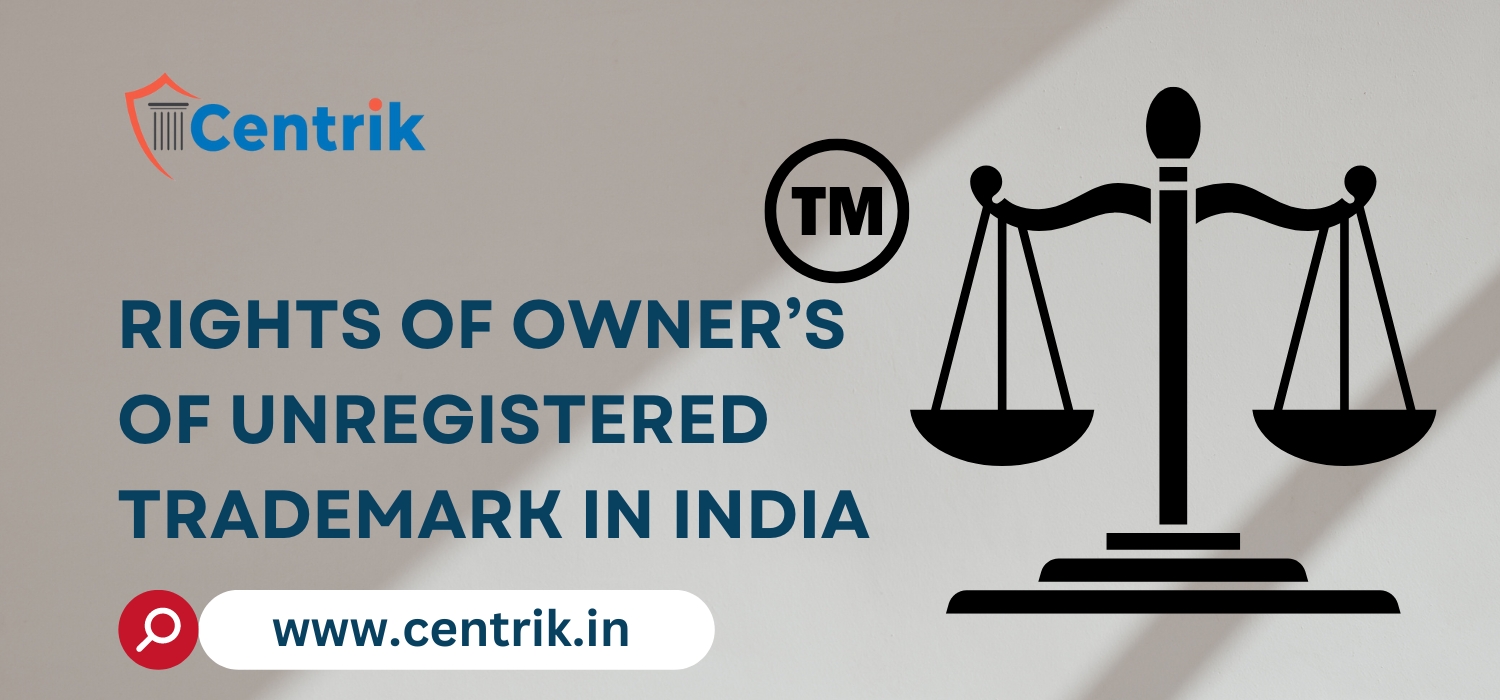
In India, similar to other jurisdictions, unregistered trademark owners also have certain rights under common law to protect their enregistered marks. These rights are primarily based on prior use of the mark in commerce and can provide some level of protection against unauthorized use by others. Here’s an overview of the rights for unregistered trademark owners in India:
Common Law Trademark Rights:
- Prior Use Rights: Like in many countries, the primary basis for trademark rights in India is prior use of the mark in connection with goods or services. If you’ve been using a particular mark in the course of your business operations, you may have rights to that mark in the specific geographic regions where you’ve been using it.
- Protection Against Passing Off: The law of passing off is a common law remedy that protects unregistered trademarks in India. Passing off occurs when one party misrepresents their goods or services as being associated with or endorsed by another party. Unregistered trademark owners can take legal action against passing off by demonstrating that the unauthorized use of their mark is likely to cause confusion or deceive consumers.
- Goodwill and Reputation: Unregistered trademark owners may also rely on the goodwill and reputation they’ve built around their mark through consistent use in the marketplace. Evidence of the mark’s recognition and association with particular goods or services can strengthen a passing off claim.
- Enforcement: Enforcing common law trademark rights in India involves initiating legal proceedings under the law of passing off. This typically requires gathering evidence of prior use, establishing goodwill and reputation in the mark, and demonstrating likelihood of confusion or deception caused by the infringing use.
- Limitations: It’s important to note that common law trademark rights in India are limited to the specific geographic regions where the mark has been used and where the owner has established goodwill. Unlike registered trademarks, common law rights do not provide nationwide protection or the same level of legal presumptions and remedies.
Benefits of Registration:
While common law rights offer some level of protection, registering a trademark in India provides several significant benefits, including:
- Nationwide Protection: Registration grants exclusive rights to use the mark throughout India, regardless of the specific geographic areas of prior use.
- Legal Presumptions: Registered trademark owners benefit from legal presumptions of ownership and validity, making it easier to enforce their rights in court.
- Enhanced Remedies: Registered trademark owners are entitled to stronger legal remedies, including statutory damages and injunctive relief, in cases of infringement.
Conclusion:
Unregistered trademark owners in India do have rights under common law to protect their marks, particularly through actions for passing off. However, registration provides stronger and more comprehensive protection, and it’s generally advisable for businesses to register their trademarks to safeguard their brands and maximize legal remedies in case of infringement. Consulting with a trademark attorney can help navigate the complexities of trademark law and develop an effective brand protection strategy.




 join For Updates
join For Updates